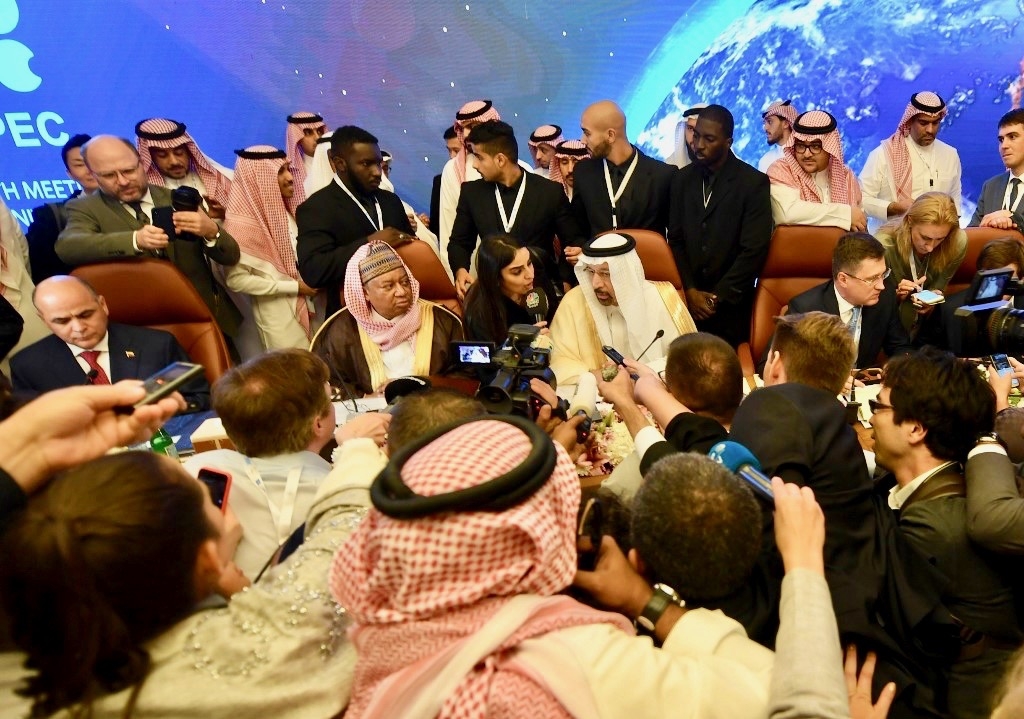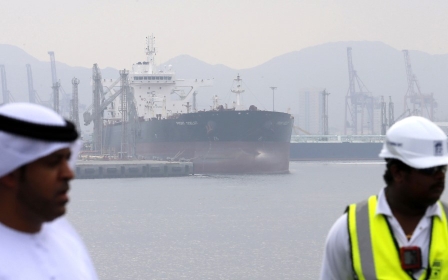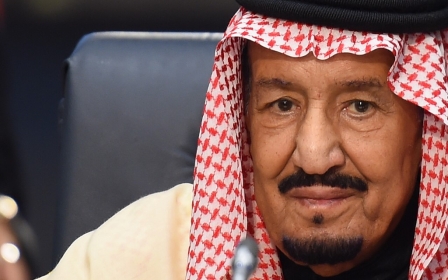Saudi Arabia, UAE see sufficient oil supplies despite falling Iran, Venezuela output

Oil supplies are sufficient and stockpiles are still rising despite massive output drops from Iran and Venezuela, OPEC kingpin Saudi Arabia and key producer UAE said on Sunday, as oil exporters met in Jeddah.
Producer nations gathered to discuss how to stabilise a volatile oil market amid rising US-Iran tensions in the Gulf that threaten to disrupt global supply, AFP reported.
Still, "we see that inventories are rising and supplies are plenty," Saudi Energy Minister Khalid al-Falih told reporters. "None of us wants to see the stocks swell again," he added, with reference to a supply surplus that sent prices sharply lower in the second half of last year. "We have to be cautious," Falih said.
Massive drops in exports by Iran and Venezuela come alongside output cuts of 1.2 million barrels per day implemented by the OPEC+ group since January.
New MEE newsletter: Jerusalem Dispatch
Sign up to get the latest insights and analysis on Israel-Palestine, alongside Turkey Unpacked and other MEE newsletters
The UAE's energy minister said there was no need to relax the deal by the OPEC+ group of oil exporting countries to cut output by 1.2 million barrels per day to support prices. "We have seen inventory building. I don't think it makes sense" to alter the existing deal, said Suheil al-Mazrouei.
OPEC will fill any supply gaps that may emerge from tighter sanctions on Iran, Mazrouei said. “If there is a need to attend to any shortage in the market we will do it, but we don’t see that,” Bloomberg quoted him as saying.
Saudi Arabia sees no need to boost production quickly now, with oil at about $70 a barrel, as it fears a build-up in inventories and a price crash, OPEC sources told Reuters earlier. The United States, not a member of OPEC+ but a close ally of Riyadh, wants the group to boost output to lower oil prices.
Falih has to find a delicate balance between keeping the oil market well supplied and prices high enough for Riyadh's budget needs, while pleasing Moscow to ensure Russia remains in the OPEC+ pact, and being responsive to the concerns of the United States and the rest of OPEC+, sources told Reuters.
The meeting comes days after sabotage attacks against tankers in highly sensitive Gulf waters and the bombing of a Saudi pipeline - the latter claimed by Iran-aligned Yemeni rebels.
Falih reiterated on Sunday that the kingdom's oil installations were well protected. "We have strong industry security", he told reporters.
The meeting also comes as the full impact of reinstated US sanctions against Tehran kicks in, slashing the Islamic Republic's crude exports.
Iran - which did not send a representative to the meeting - was still expected to dominate the one-day meeting of the OPEC+ group of oil-producing nations. The meeting is set to conclude by making recommendations for a key summit of oil producers in late June, to be attended by Iran.
The International Energy Agency said earlier this month that global oil supply fell in April amid the effect of US sanctions on Iran and the OPEC+ production cuts.
Iran's output is already at its lowest level in more than five years, but could tumble in May to levels not seen since the devastating 1980-88 Iran-Iraq war.
Energy intelligence firm Kpler sees Iran’s exports plunging from 1.4 million bpd in April to about half a million bpd in May - down from 2.5 million in normal circumstances.
Venezuela's output - also subject to US export sanctions - is tumbling, down by over half since the third quarter of last year.
Kpler data shows OPEC+ members have kept to agreed production cuts.
Exporters fear supply glut
Still, exporters fear a rush to raise production to plug the gap left by Iranian exports could backfire by triggering a supply glut.
Sunday's meeting comes amid soaring Gulf tensions after the mysterious sabotage of several tankers off the Emirati coast and drone attacks claimed by Yemen's Houthi rebels, which shut a key Saudi crude pipeline.
Both attacks targeted routes built as alternatives to the Strait of Hormuz, the conduit for almost all Gulf exports.
Iran has repeatedly threatened to close the Strait in case of war with the US, which said this month it was sending an aircraft carrier and strike group to the region.
Oil prices edged lower on Friday on demand fears prompted by a standoff in Sino-US trade talks, but ended the week higher on rising concerns over disruptions in Middle East shipments amid US-Iran political tensions.
Middle East Eye delivers independent and unrivalled coverage and analysis of the Middle East, North Africa and beyond. To learn more about republishing this content and the associated fees, please fill out this form. More about MEE can be found here.





